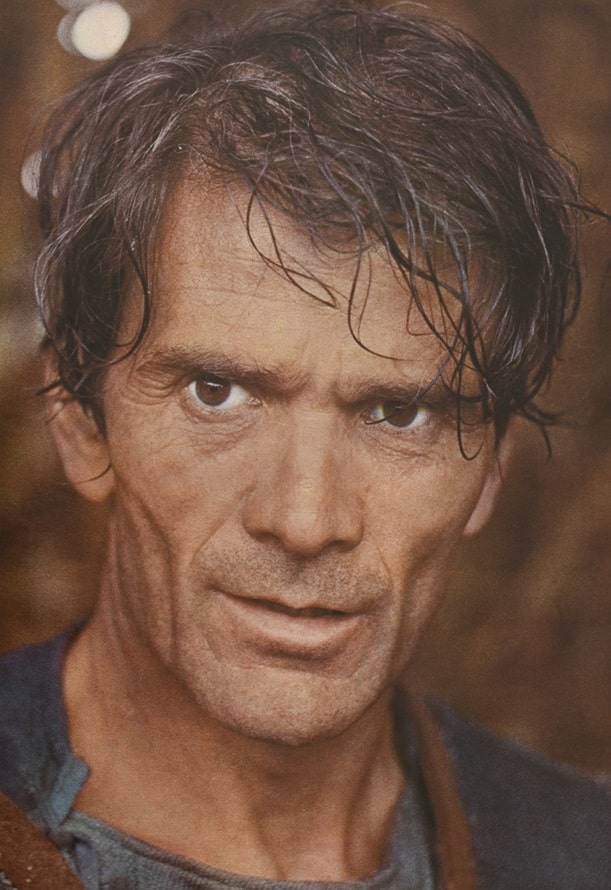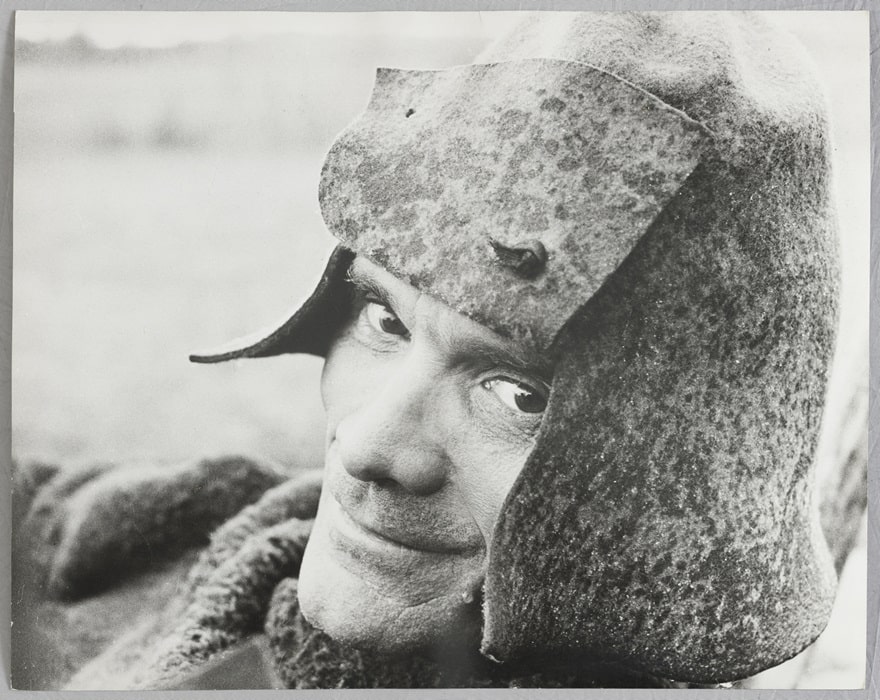The exhibition Pier Paolo Pasolini. Porcili from 11 September 2024 at Neuer Berliner Kunstverein (n.b.k.) explores the “corpo” (body) of Pasolini through a rich array of original materials, including photographs, films, newspapers, books, and film costumes. It traces his work and ideas, highlighting the visionary life and career of the director, poet, and thinker. Known for his radical views and rebellion against social conventions, Pasolini often sparked controversy in Italian society from the 1950s to the 1970s. His affiliation with the Communist Party and his open homosexuality made him a provocative figure. He faced public ridicule and legal troubles, and was murdered in 1975 under unclear circumstances. The exhibition at n.b.k. chronicles these events, shedding light on the harsh persecution Pasolini endured. It documents the systematic discrimination faced by a dissident who celebrated the body as a site of self-determination amidst a backdrop of courtrooms, street attacks, censorship, and ridicule.
Image caption: Pier Paolo Pasolini during the filming of Decameron (1971)
The title of the exhibition at n.b.k. refers to Pasolini‘s 1969 film Porcile (The Pigsty), in which the director created a drastic allegory of societal decay. The Italian public saw Pasolini as someone who denigrated places and environments inhabited by them as „pigsties“ (porcili). Pasolini showed solidarity with the Italian underclass, made blasphemous comments, defended sexual pleasure and rebelled against all restrictions imposed on the body – and was attacked for this by the bourgeoisie, the church, the judiciary, politics and the media. In Porcile (The Pigsty), Pasolini used a radical subversion of values, symbolizing both resistance against a hypocritical society tainted by its fascist past and a reflection of the degradation Pasolini himself faced.
Biographical information
Pier Paolo Pasolini (*1922 in Bologna, †1975 in Lido di Ostia /Italy) is one of the most influential and most radical artists and intellectuals of the 20th century. As a filmmaker, writer, poet, theater director, essayist, painter and actor, he sparked controversy and public debate throughout his life. The former primary school teacher published his first novel Ragazzi di vita in 1955, followed by the poetry collection Le ceneri di Gramsci (Gramsci‘s Ashes, 1957) and the novel Una vita violenta (1959) and wrote regularly for left-wing political media. In 1961, his film debut Accattone was published. In the 14 years leading up to his scandalous work Salò o le 120 giornate di Sodoma (Salò, or the 120 Days of Sodom), which he completed shortly before his death in 1975, he made over 20 feature films and documentaries, including La ricotta (1963); Comizi d‘amore (1964); Medea (1969); Decameron (1971). His work has been honored in numerous institutional presentations, including Palazzo delle Esposizioni, Rome; MAXXI – Museo nazionale delle arti del XXI secolo, Rome; Gallerie Nazionali d‘Arte Antica Palazzo Barberini, Rome (all 2022–2023); DFF – Deutsches Filminstitut Filmmuseum, Frankfurt/Main (2022); Academy Museum of Motion Pictures, Los Angeles (2022); Museum of Modern Art, New York (2012–2013).

Filmprogram – Pier Paolo Pasolini Retrospective
With introductions and commentaries by Thomas Macho, Hito Steyerl, Klaus Theweleit, and Margarethe von Trotta
Parallel to the exhibition, Neuer Berliner Kunstverein (n.b.k.) presents a series of films by Pier Paolo Pasolini at Babylon cinema. This extensive retrospective highlights a selection of his most celebrated films, offering insights into the central themes and the political and aesthetic principles underpinning his work. Pasolini believed that cinema was the ideal medium for depicting reality – a reality he saw deeply connected to the “sacredness” and innocence of the human body. Many of his characters exist on the margins of society and history – including vagabonds, thieves, and disenfranchised youth – through whom he sought to represent aspects of authentic life. Pasolini frequently critiqued the bourgeoisie for its embrace of consumerist values, often portraying it as disconnected from genuine human experience. The films in this series feature stark, precarious landscapes and disarming actors whose roles reflect lives marked by poverty. In masterpieces such as Accattone (The Scrounger), La ricotta, Il Vangelo secondo Matteo (The Gospel According to St. Matthew), and Decameron, Pasolini celebrates the beauty of innocence. Conversely, in Teorema (Theorem), Porcile (The Pigsty), and Salò o le 120 giornate di Sodoma (Salò, or the 120 Days of Sodom), he unflinchingly exposes inhumanity and the abuse of power.
The film series is curated by Giuseppe Garrera and Cesare Pietroiusti.
All films will be shown in the original Italian version with English subtitles.
WHEN?
Opening: Wednesday, 11. September 2024, 6 pm
Exhibition period: Wednesday, 11 September until Sunday, 10. November 2024
Opening hours: Tuesday – Sunday noon – 6 pm / Thursday noon – 8 pm
Babylon Kino: Wednesday, 11 September until Sunday, 10. November 2024
Find more information at babylonberlin.eu
WHERE?
Neuer Berliner Kunstverein
Chausseestraße 128/129
10115 Berlin
Babylon Kino
Rosa-Luxemburg-Str. 30
10178 Berlin
COSTS?
n.b.k.: Free
Babylon Kino: 9 € regular (from 130 min Movie duration: 9,50 €)






